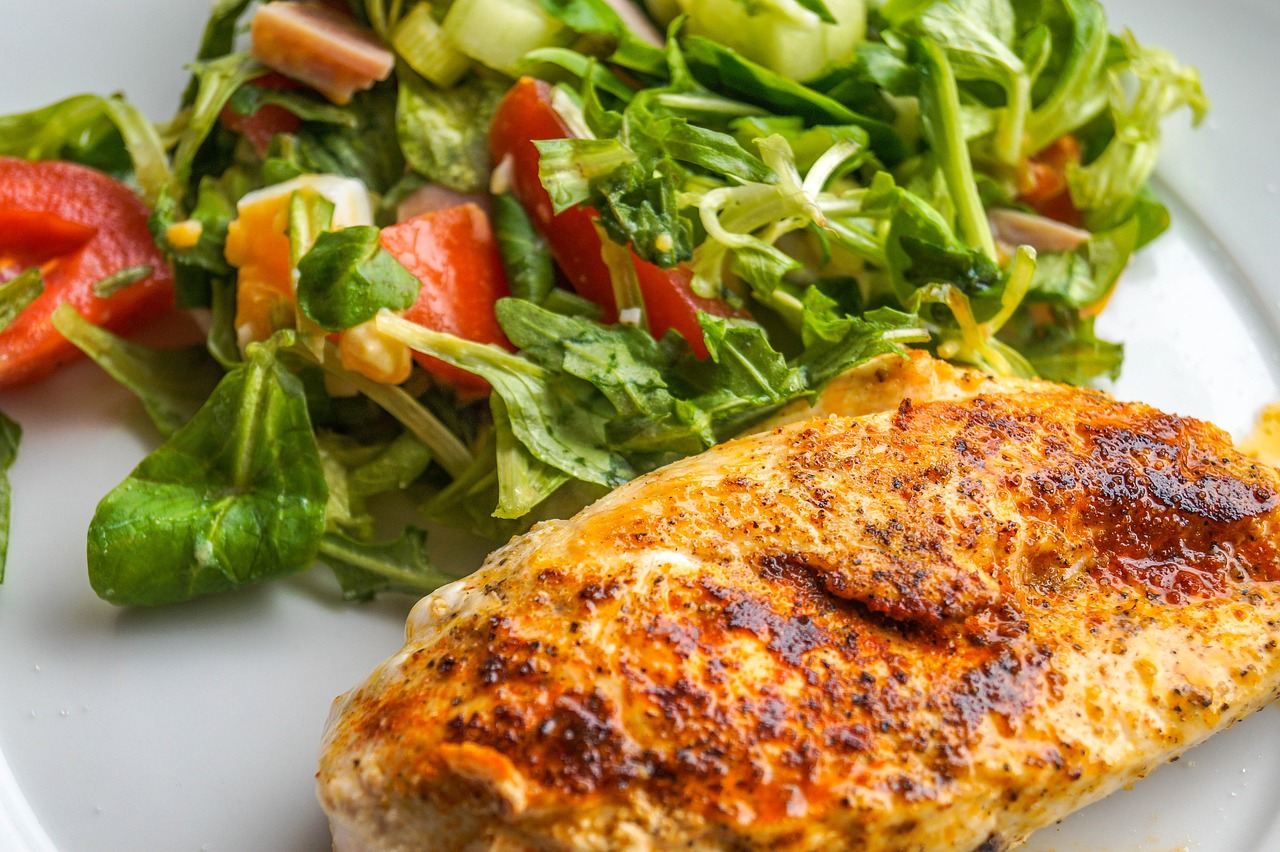Best Meat for Weight Loss Women: Top Lean Proteins Unveiled
Selecting the right type of meat is a crucial aspect of any weight loss regimen for women. Protein-rich meats can help maintain muscle mass while shedding fat, making them an essential component of a healthy diet.
Lean cuts of meat, such as chicken breast or turkey, are particularly effective for weight loss because they provide high protein content with relatively few calories. Including these in a balanced diet can support weight management goals.
Fish and seafood also offer significant health benefits and are excellent choices for those looking to lose weight. They’re not only rich in protein but also contain omega-3 fatty acids, which have been linked to various health benefits, including improved heart health.
On the other hand, when considering red meat, opting for lean cuts is key—they offer the needed nutrients without excessive fat. For those inclined towards a plant-based diet or seeking variety, incorporating plant-based proteins can complement the nutrition provided by meats and support overall weight loss efforts.
Key Takeaways
- Lean proteins are essential for maintaining muscle during weight loss.
- Fish and seafood contribute to overall health and can aid in weight management.
- Plant-based proteins offer a nutritious alternative to support a diverse diet.
Protein-Rich Meats for Weight Loss
Selecting high-protein, low-fat meats is essential for effective weight loss. These meats help maintain muscle mass while limiting calorie intake, making them an ideal choice for women looking to lose weight.
Chicken: A Versatile Protein Source
Chicken, particularly skinless chicken breast, is recognized for its high protein content and low-fat profile. A typical 3-ounce serving contains about 24 grams of protein, which is beneficial for muscle repair and maintenance without the excess calories that can hinder weight loss efforts.
Baked or grilled chicken breast without the skin can be a delicious and versatile centerpiece in a weight loss diet.
Turkey and Other Poultry
Similarly, turkey is another excellent source of lean protein, contributing to satiety and promoting fat loss. It offers slightly different flavors and nutrient profiles but still remains a top choice due to its high protein percentage and low calorie count.
Roasted turkey, particularly when skinless, aligns well with weight loss objectives by providing essential nutrients without excessive fat.
Health Benefits of Fish and Seafood
Fish and seafood are essential components of a diet aimed at weight loss for women, offering a rich supply of omega-3 fatty acids and high-quality protein while being low in fat and calories.
Salmon: Omega-3 and Lean Protein
Salmon stands out as a superfood due to its exceptional omega-3 fatty acid content which supports heart health and contributes to weight management. A lean source of protein, salmon helps in muscle building and maintenance, making it an excellent choice for those aiming to lose weight.
Wild-caught salmon is often considered more sustainable and can have lower levels of mercury compared to other fish.
Shellfish: Low-Calorie Options
Shellfish, including oysters, shrimp, clams, and mussels, offer nutritious benefits as they are not only high in protein but also low in calories.
Oysters, for instance, are a good source of selenium and omega-3 fats and can be included in a diet focused on weight loss. On the other hand, mussels provide a cost-effective way to include seafood in one’s diet without compromising on the nutritional quality.
Tuna: A Lean Protein with Essentials
Tuna is a versatile and widely-consumed fish that delivers a substantial amount of lean protein, which is crucial for appetite control and satiety. It also supplies significant amounts of omega-3 fatty acids and selenium.
However, the FDA recommends choosing lower mercury options such as light tuna over white tuna and enjoying it in moderation.
Fish and seafood offer numerous benefits when included in a balanced diet, especially for women seeking weight loss. They provide necessary nutrients without the high calorie count found in many other protein sources.
Red Meat and Lean Cuts
When it comes to weight loss, choosing lean meats can be a smart strategy. Red meat, especially lean cuts, provides high-quality protein and certain nutrients like iron and niacin, without an excess of saturated fat.
Beef Tenderloin and Lean Ground Beef
Beef tenderloin is a prime example of a red meat that is both flavorful and healthy when trying to reduce body weight. This cut is remarkably low in fat compared to other beef cuts, containing approximately less than 10 grams of total fat and less than 4.5 grams of saturated fat per 3.5-ounce serving.
For those concerned about heart disease, integrating leaner cuts such as beef tenderloin into their diet helps to manage saturated fat intake. Lean ground beef is another excellent choice, as opting for ground beef with a higher percentage of leanness ensures low fat content, while still offering ample protein.
Nutritional Content of Beef Tenderloin:
- Protein: ~22 grams per 3-ounce serving
- Calories: ~205 calories per 3-ounce serving
- Fat: < 10 grams per 3.5-ounce serving
Nutritional Content of Lean Ground Beef:
- Protein: varies based on leanness, up to 22 grams per 3-ounce serving
- Fat: < 10 grams per 3.5-ounce serving for 90% lean meat
Pork Tenderloin: An Alternative White Meat
Pork tenderloin is often overlooked in discussions about red meat, as it is popularly termed “the other white meat”. However, lean pork makes the cut for effective weight loss meats due to its lower fat profile and high protein content.
A 3-ounce serving of pork tenderloin has approximately 122 calories and delivers a robust 22 grams of protein. While pork tends to have a higher fat content than poultry, choosing leaner cuts like pork tenderloin ensures that you can enjoy red meat while keeping an eye on saturated fat intake and thereby addressing concerns related to heart disease.
Plant-Based Alternatives and Complementary Foods
When considering weight loss for women, integrating plant-based alternatives into a diet offers a variety of nutrient-rich options. These alternatives often provide the necessary proteins without the high levels of saturated fats found in many animal products.
- Legumes such as beans, lentils, and chickpeas are excellent protein sources. They are also rich in fiber, which helps in satiety and digestion.
- Nuts and seeds offer healthy fats and are a good snack option. However, they are calorie-dense, so portion control is advised.
- Whole grains like quinoa, barley, and brown rice provide complex carbs, necessary for energy. They also contribute to fullness due to their fiber content.
Here is a practical list of plant-based options:
| Food Category | Examples | Nutrient Contribution |
|---|---|---|
| Legumes | Beans, lentils, peas | Protein, Fiber |
| Nuts & Seeds | Almonds, flaxseeds | Healthy Fats, Protein |
| Whole Grains | Quinoa, brown rice | Carbs, Fiber |
| Vegetables | Broccoli, kale, spinach | Vitamins, Fiber |
| Fruits | Berries, apples | Vitamins, Fiber |
These foods are not only recommended for their nutritive value but also for their role in promoting a balanced diet, which is key for sustainable weight loss. Additionally, integrating small portions of dairy and eggs can provide high-quality proteins and other nutrients like calcium and vitamin B12.
A successful diet for weight loss is not just about reducing meat intake but including a variety of plant-based foods. Women should focus on incorporating a mix of these foods into their diet to ensure they’re getting a broad spectrum of essential nutrients.


